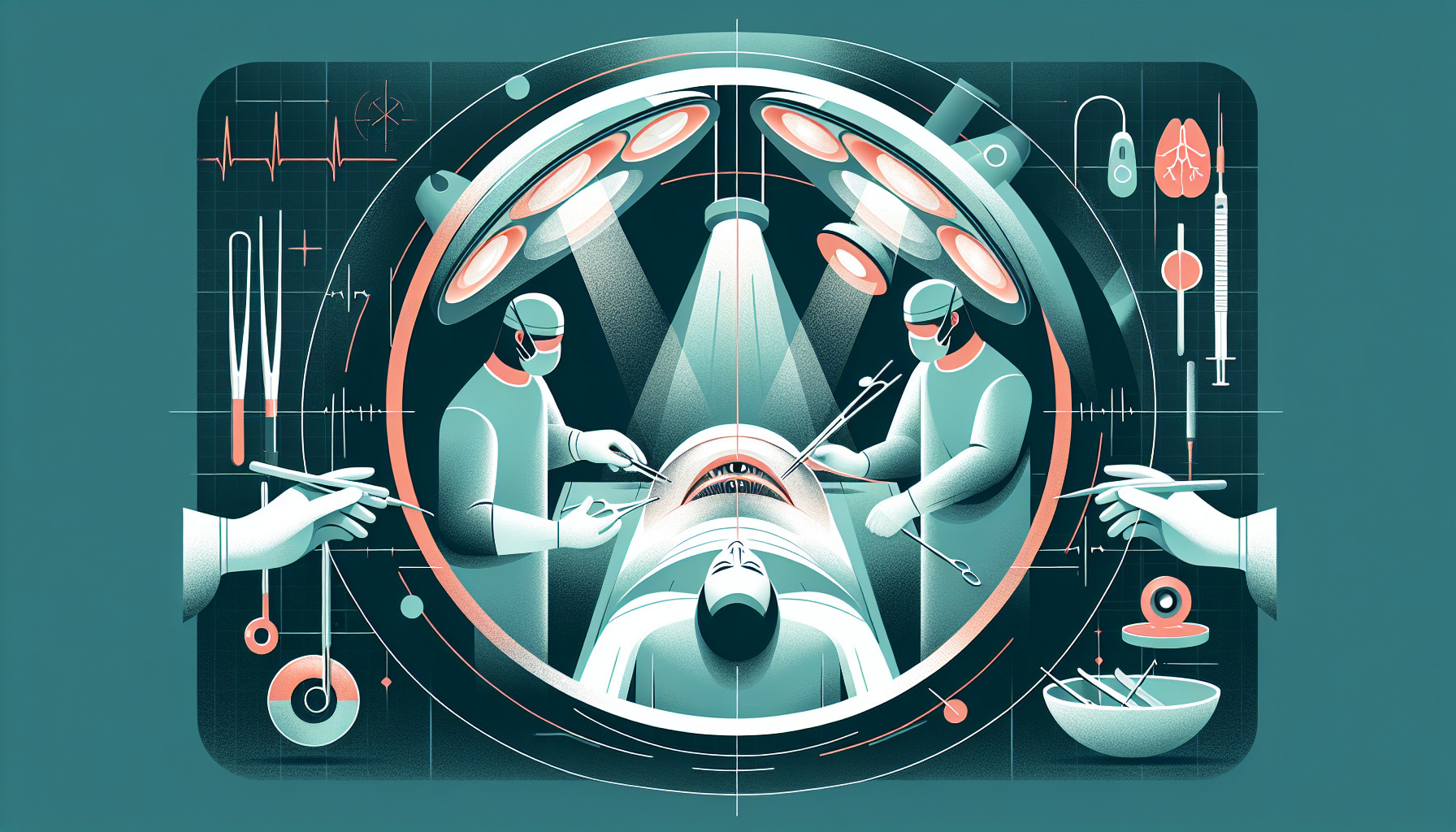Our Summary
This research paper discusses a rare but significant outcome of cataract surgery - double vision or diplopia. Several factors could be responsible for this, including damage from anesthesia, surgical injuries, eye lens distortions, brain disorders in patients with innate eye misalignment, and the revealing of previously unnoticed eye misalignment. As the number of cataract surgeries increases due to an aging population, understanding this unusual result could help in diagnosing and treating post-surgery double vision more effectively.
FAQs
- What causes double vision after cataract surgery?
- How could the increase in cataract surgeries due to an aging population affect the understanding and treatment of post-surgery double vision?
- Can existing brain disorders or innate eye misalignment contribute to double vision after cataract surgery?
Doctor’s Tip
A helpful tip a doctor might tell a patient about cataract surgery is to follow all post-operative care instructions carefully, including using prescribed eye drops and attending follow-up appointments. It is also important to avoid strenuous activities and heavy lifting in the days following surgery to reduce the risk of complications. Additionally, patients should be aware of potential side effects, such as temporary blurry vision or sensitivity to light, and contact their doctor immediately if they experience any unusual symptoms.
Suitable For
Patients who are typically recommended for cataract surgery include those who have experienced a significant decline in vision due to cataracts, leading to difficulty performing daily activities such as reading, driving, or watching television. Other factors that may indicate the need for cataract surgery include glare or halos around lights, double vision, or difficulty seeing at night.
Additionally, patients with cataracts that are causing other eye health issues, such as glaucoma or macular degeneration, may also be recommended for surgery to improve overall eye health and function.
Overall, cataract surgery is typically recommended for patients who have significant vision impairment due to cataracts and who are not seeing improvement with other treatments such as eyeglasses or contact lenses.
Timeline
Before cataract surgery:
- Patient undergoes a comprehensive eye examination to determine the severity of cataracts and overall eye health.
- Patient discusses treatment options with their ophthalmologist, including the choice of intraocular lens (IOL) for replacement.
- Pre-operative tests may be conducted to measure the shape and size of the eye, as well as any underlying eye conditions that may affect surgery.
- Patient receives instructions on how to prepare for surgery, including fasting before the procedure and discontinuing certain medications.
After cataract surgery:
- Patient is monitored for a short period in the recovery room to ensure there are no immediate complications.
- Patient may experience some discomfort, blurry vision, and sensitivity to light in the days following surgery.
- Eye drops are prescribed to reduce inflammation and prevent infection.
- Follow-up appointments are scheduled to monitor healing and assess visual acuity.
- Patient gradually resumes normal activities, with restrictions on heavy lifting and strenuous exercise for a few weeks.
- Vision continues to improve over time as the eye adjusts to the new lens.
- Patient may need to undergo vision therapy or wear corrective lenses if double vision or other complications arise post-surgery.
Overall, the timeline of cataract surgery involves thorough pre-operative assessment, the surgical procedure itself, and post-operative care to ensure optimal visual outcomes for the patient.
What to Ask Your Doctor
Some questions a patient should ask their doctor about cataract surgery include:
- What are the risks and benefits of cataract surgery for my specific condition?
- What type of cataract surgery will be performed (traditional vs. laser-assisted) and why?
- What is the success rate of the surgery and what can I expect in terms of visual improvement?
- What is the recovery process like and how long will it take for my vision to fully stabilize?
- Are there any potential complications or side effects I should be aware of?
- Will I need to wear glasses or contacts after the surgery, and if so, what type?
- How often will I need follow-up appointments after the surgery?
- What should I do if I experience any unusual symptoms or complications after the surgery?
- Can cataract surgery worsen existing eye conditions or potentially cause new ones, such as double vision?
- How can I best prepare for the surgery to ensure optimal results?
Reference
Authors: Bouffard MA, Cestari DM. Journal: Semin Ophthalmol. 2018;33(1):11-16. doi: 10.1080/08820538.2017.1353806. Epub 2017 Oct 9. PMID: 28990829
